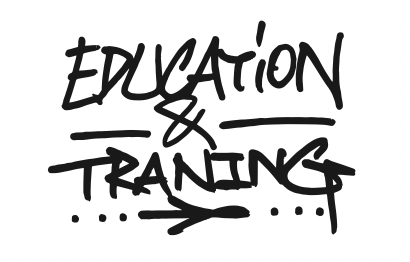
Some of the key issues that often correlate, coincide, or are caused by the elements of "Education & Training" in a cooperative are as follows -
COOPERATIVE CULTURE
The centrality and importance of education in a cooperative is a strong indicator of the health of the culture in the group. Education is viewed as the reason for a cooperative to exist at all - it's raison d'être, even to the point that it takes precedence over fiscal issues. This kind of prioritization of “people over profit/surplus,” which is both pragmatic and idealistic, is a strong rejection of the culture of capitalism and, instead, an insistence on a cooperative culture. Further, given that culture is created and continually shaped by the people within the cooperative and their relationships, education about cooperative methods of communication and emotional regulation are instrumental in safeguarding and strengthening cooperative culture.
STRUCTURE & PARTICIPATION
If education is the raison d’etre of a cooperative, it needs to be built into the organization’s regular functioning. Many of the examples included in this section described systems or mechanisms (e.g. general assemblies, job descriptions) that were intentionally structured to be sources of member education, even if they have not traditionally been perceived as being such. One of the most obvious examples of structuring participation in a cooperative to prioritize education is that more than one of those cooperatives interviewed shared that, if the cooperative were to do nothing else, it would still provide education in the form of classes or group discussions.
SOCIAL TRANSFORMATION
People and the world are transformed through education. Often, the sole reason why people continue to subscribe to value systems and institutions that are harmful to them and humanity is due to a lack of education about how those systems truly work and what the real impact of those systems are on their lives. “Their way is blocked not by the lack of power, but the lack of knowledge” (Arizmendiarrieta, 1999, 7). As discussed in the section “Dirty Words,” there are nominal cooperatives and capitalist-cooperators that believe they are living and working cooperatively towards social transformation, but are, instead, contributing to the very system cooperativism seeks to transform. This is often because they are not sufficiently educated about or engaged with cooperative philosophy, nor have they fully assessed the insidiousness of the capitalist perspective in their life and work. Moving from the systemic to the personal, all movements for social transformation and cooperatives, alike, are comprised of people. No matter how well designed or intended a movement or organization may be, broad scale social change requires changes at the level of the individual. Social transformation requires education of people in how to live and relate cooperatively in all aspects of their lives, not just “at work.”
